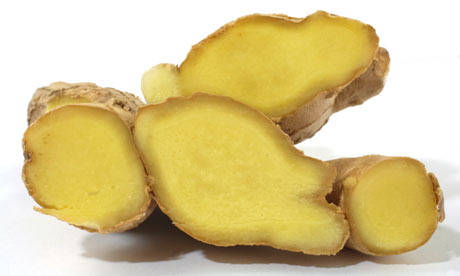
If I could ban any single word from discussions about food and drink, the word would be 'detox.' Outside its medical definition the whole concept of 'detoxing' is spurious. The body clears itself of an excess of rich foods and / or the after-effects of too much alcohol on its own, aided by the miracle breakthroughs known as eating in moderation and drinking water.
So why do people still talk about detoxing? Because there's an industry that garners rich pickings from the idea, an industry that thrives despite the debunking efforts of our own Ben Goldacre, among others. And one of the latest manifestations is a new restaurant in London called Food Secret. The PR bumf describes Food Secret as "the groundbreaking new Soho-based eatery that offers a wide range of super foods [another term I'd like to ban, by the way] that not only taste fantastic, but are great for the body too."
Food Secret claims to "unlock the secret behind the best food experience" in order "to demystify the whole process of detoxing." Using "handpicked … key ingredients" the restaurant creates "culinary offerings that are packed with essential vitamins, minerals and enzymes that will help eliminate stored toxins and support the body back to optimal health."
Catchy names like Detox Soup (packed with such key purifying ingredients as shitake mushrooms, roasted broccoli, grated ginger and roast garlic purée) and "toxin-busting salads" like Regeneration X (watercress, spinach, toasted mixed seeds and roast garlic vinaigrette) convey the idea.
Naturally, there's a seasonal aspect to Food Secret's press release. It notes that "the average person consumes a massive 7,000 calories on Christmas Day alone, so it's small wonder that come January many of us feel in desperate need of a good detox." This is another way of saying: 'after overeating at Christmas, many people want to eat less and lose weight.' Why couch that aim in the jargon of pseudo-science?
Nonsense of this kind undermines the very message it aims to promote. Far from 'demystifying detox', it puts us in the position of children who need to be told what to eat by 'experts' who know more than we do. The simple truth about a good diet has been summed up in seven words by the brilliant American food writer Michael Pollan, whose indispensable In Defense of Food begins with the words: "Eat food. Not too much. Mostly plants." By 'food' Pollan means raw ingredients prepared and cooked from scratch, rather than processed foods. Eat a good variety of them (mostly plants!) and you will be eating a healthy diet.
In many ways, of course, Food Secret is on Pollan's side. Their menu is heavy on the vegetables, and their eating advice is largely sensible. Moreover, no restaurant that puts watercress and spinach together in a salad can be all wrong. Nonetheless, it makes my un-detoxed blood boil. Not just because it embraces the detox fantasy but because it implicitly endorses what Gyorgy Scrinis, an Australian sociologist of science, calls nutritionism. Michael Pollan devotes a good chunk of his book to nutritionism, which he calls a reductionist view of food as "a delivery system for nutrients."
Needless to say, there is much more to food than a set of nutrients. Food exists not just to nourish but to give pleasure, and to bring people together. Any organisation that places nutrients first, and suggests buying magical packages that will induce well-being (whether a spinach salad or a box of breakfast cereal), is confusing the important issues.
But maybe I'm being too harsh on Food Secret, which after all does serve real food. Maybe I'm being too harsh on detoxing in general. Do you think there's more in it than a load of scientific hooey?

